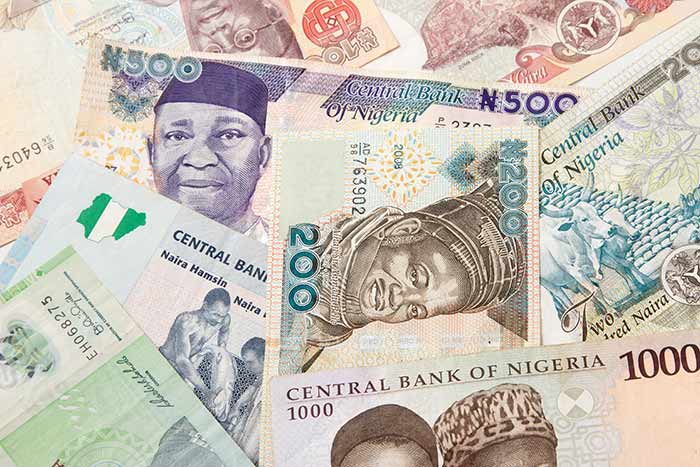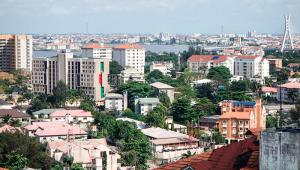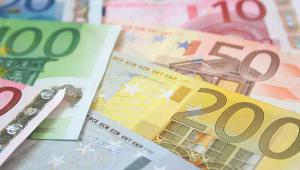web_nigeriannaira_shutterstock_200751113.jpg

Nigerian naira
Nigeria’s National Bureau of Statistics recorded that inflation slowed to 17.76% in February from 18.71% in the month prior, compared with the same months last year. However, prices rose by 1.5% throughout the month.
Rising inflation, which has sent the price of basic goods like food soaring, is one symptom of Nigeria’s first economic downturn in a quarter of a century. The crash in oil prices sent its once-booming economy into recession, and resulted in a severe shortage of the foreign currency Nigeria relies on for imports.
A substantial depreciation in the value of Nigeria’s currency, the naira, and this dollar shortage have pushed prices up to their highest in 11 years.
In a bid to narrow a widening gulf between official and black market exchange rates, the Central Bank recently tested the waters with a limited devaluation of the naira.
The timing of the move was deemed noteworthy by analysts, who pointed out it had occurred while the country’s president, Mohammadu Buhari, who opposes measures to devalue the currency, was abroad receiving medical treatment.
After more than 50 days overseas, Buhari returned to Nigeria last week to face the task of getting one of Africa’s biggest economies back on track.
The government recently announced it is targeting inflation of less than 10% by the end of the decade. Some analysts do expect inflation to ease by 2018, which would ease cost of living pressures for Nigerians.
Food, however, was one of the key drivers of inflation growth throughout February, with price rises in staples like bread, cereals, meat, fish and potatoes. The highest year-on-year increases were seen in electricity, fuel and clothing.
Cobus de Hart, an analyst at NKC Research, said he also expects foreign currency supply to remain tight, although deflation could start picking up in the next quarter of the year.
However, he continued, the inflation outlook will “ultimately depend on the CBN’s decisions regarding the management of the naira exchange rate”, and he anticipates a devaluation in the official rate in the middle of the year.
While the bank is due to hold a meeting of its monetary policy committee next week, Hart expects it will leave interest rates unchanged for now.













